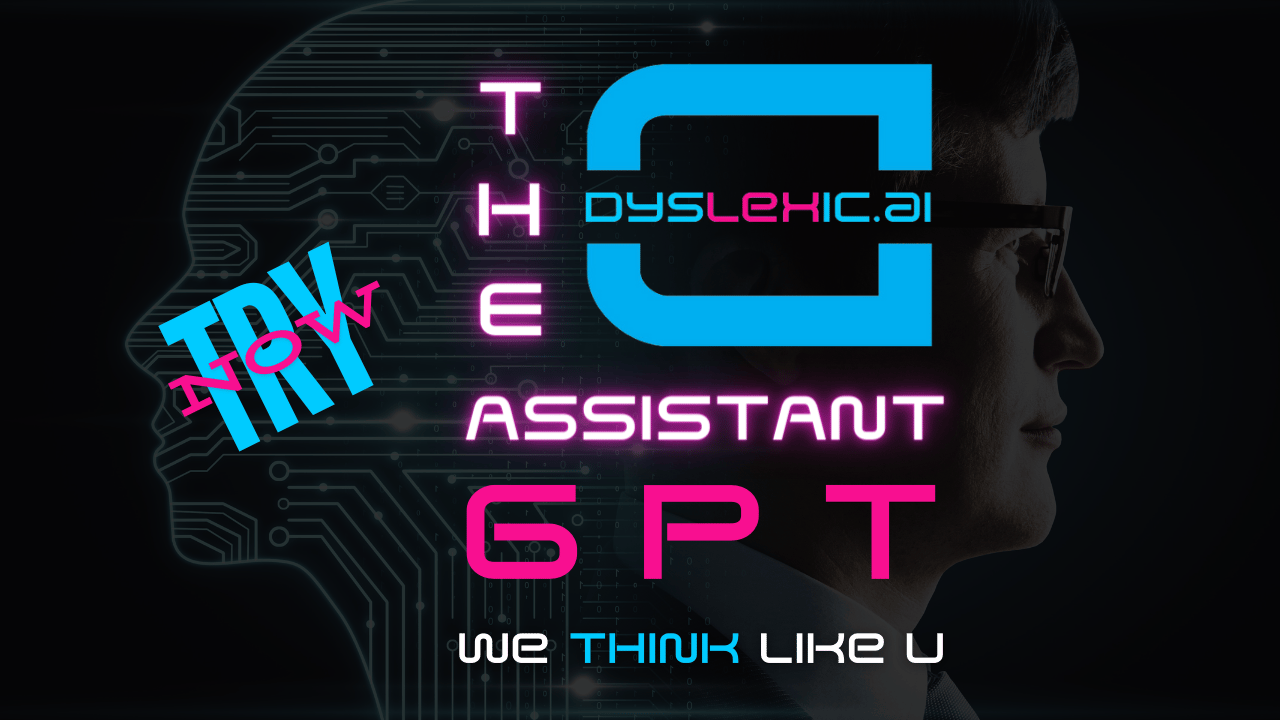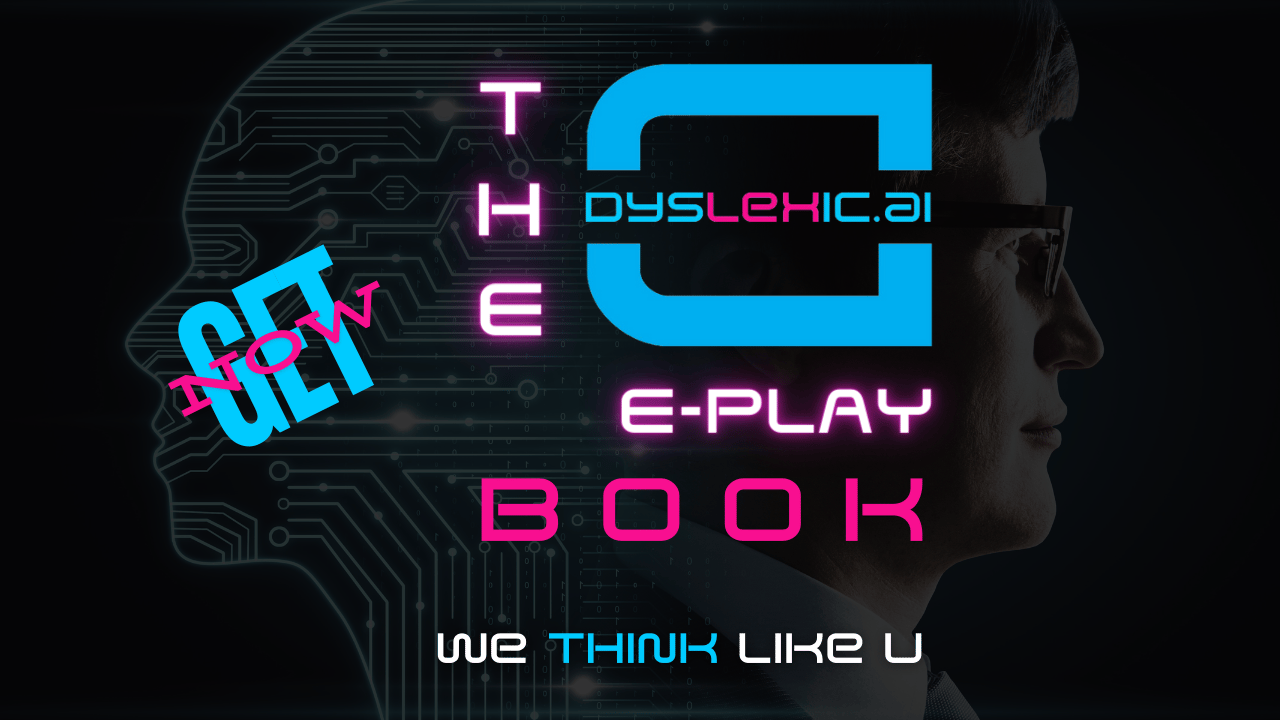- DYSLEXIC AI
- Posts
- Newsletter 251: How AI is Making a Difference
Newsletter 251: How AI is Making a Difference
🧠 Harnessing AI to Empower Neurodivergent Thinkers and Enhance Productivity

Hello Outside-the-Box Thinkers!
Bold Opinion: AI is not just a tool; it’s a game-changer for every industry.
Have you ever wondered how AI can revolutionize your professional journey? For me, integrating AI into my work has been a transformative experience, unlocking new potentials and driving innovative solutions. AI has enabled me to think outside the box, streamline processes, and bring creative ideas to life with unprecedented efficiency.
The AI Advantage for Dyslexic Thinkers
AI-powered tools are changing how we find and use information, which is particularly beneficial for those with dyslexia. Large language models (LLMs) can now seamlessly unify data across applications, putting contextualized information at people's fingertips within seconds. This can help streamline daily tasks such as:
- Summarizing meetings and texts
- Creating drafts of documents
- Organizing emails and information
- Formatting documents
- Automating workflows
These capabilities can significantly reduce the cognitive load for individuals with dyslexia, allowing them to focus on higher-level thinking and creativity.
AI in Action: Real-World Applications
The capacity and speed of GenAI platforms are addressing some of the key challenges faced by individuals with dyslexia in work and educational settings. Let's look at some of the obstacles to innovation that AI can help overcome:
- Reducing Information Overload: AI can help filter and organize the constant barrage of information from emails, texts, and apps.
- Improving Focus: By handling routine tasks, AI allows individuals to concentrate on truly creative, value-added work.
- Enhancing Productivity: Early users of AI tools report significant time savings and improved work quality.
My Personal AI Journey
From Struggle to Success
When I first started my career, I often felt overwhelmed by the amount of written communication required. Reports, emails, and presentations were a constant source of anxiety. However, discovering AI-powered tools changed everything for me.
Game-Changing Moments
- Voice-to-Text Revolution: I remember the first time I used an advanced voice-to-text tool to draft an important client proposal. What would have taken me hours of painstaking writing and editing was completed in just 30 minutes. The relief and confidence boost were immeasurable.
- AI-Assisted Data Analysis: During a crucial project, I leveraged an AI tool to analyze complex datasets. The insights generated helped me identify a key market trend that our competitors had missed. This led to a successful product launch that put our company on the map.
- Personalized Learning Breakthrough: AI-powered adaptive learning platforms have been a game-changer for my professional development. I've been able to acquire new skills at my own pace, with content presented in ways that suit my learning style.
The Ripple Effect
Integrating AI into my work hasn't just improved my personal productivity; it's allowed me to mentor other neurodivergent professionals, sharing these transformative tools and techniques. The impact on our team's overall performance has been remarkable.
Challenges in Adopting AI
While AI offers tremendous benefits, it's important to acknowledge and address potential challenges:
1. Learning Curve: Many AI tools require time and effort to master.
- Start with user-friendly tools and gradually progress to more complex ones.
- Take advantage of tutorials and online courses specific to each tool.
- Join user communities for peer support and tips.
2. Over-reliance: There's a risk of becoming too dependent on AI tools.
- Use AI as a support, not a replacement for developing skills.
- Set aside time for tasks without AI assistance to keep your skills sharp.
- Regularly review and understand the AI's output rather than accepting it blindly.
3. Cost: Some of the most powerful AI tools can be expensive.
- Look for educational or non-profit discounts.
- Start with free versions and upgrade only when necessary.
- Consider the return on investment in terms of time saved and quality improved.
4. Privacy Concerns: Many AI tools require data input, which can raise privacy issues.
- Carefully read and understand the privacy policies of AI tools.
- Use tools that offer local processing options when handling sensitive information.
- Regularly review and clean up data stored by AI tools.
Ethical Considerations in AI Use
As we embrace AI, it's crucial to consider the ethical implications:
1. Bias in AI: AI systems can inadvertently perpetuate biases present in their training data. Be aware of this possibility and cross-check important decisions.
2. Transparency: When using AI-generated content, it's ethical to disclose this fact, especially in professional or academic settings.
3. Job Displacement: While AI can enhance our capabilities, it's also changing the job market. Stay informed about these shifts and focus on developing skills that complement AI rather than compete with it.
4. Environmental Impact: Training and running AI models can have a significant carbon footprint. Consider using eco-friendly AI options when available.
Future Outlook: Emerging AI Technologies
The AI landscape is rapidly evolving. Here are some exciting developments on the horizon:
1. Neuroadaptive AI: These systems will adapt in real-time to an individual's cognitive state, providing personalized support for dyslexic users.
2. Advanced Language Models: Future models will offer even more nuanced understanding of context and intent, further improving writing assistance.
3. Augmented Reality (AR) Integration: AI-powered AR could provide real-time visual aids and information overlays, assisting with reading and navigation in the physical world.
4. Emotion AI: By recognizing and responding to emotional states, these systems could offer more empathetic and effective support for learning and communication.
5. Brain-Computer Interfaces: While still in early stages, these technologies could eventually allow direct brain-to-text transcription, bypassing traditional writing methods.
Preparing for the AI-Driven Future
To stay ahead in the rapidly evolving AI landscape:
1. Continuous Learning: Dedicate time each week to learning about new AI tools and technologies. Online platforms like Coursera and edX offer courses on AI and its applications.
2. Experiment Regularly: Try out new AI tools in low-stakes situations to build familiarity and confidence.
3. Network and Collaborate: Join professional groups or online communities focused on AI in your industry. Sharing experiences with peers can provide valuable insights.
4. Develop Complementary Skills: Focus on uniquely human skills like creative problem-solving, emotional intelligence, and ethical decision-making, which will remain valuable alongside AI.
5. Stay Informed on AI Ethics: Follow discussions on AI ethics and regulation to understand the broader implications of AI in society and business.
6. Advocate for Inclusive AI: Use your experiences as a dyslexic professional to provide input on making AI tools more accessible and beneficial for neurodivergent users.
Conclusion
AI is not just changing the way we work; it's opening up new possibilities for dyslexic thinkers to thrive in the professional world. By embracing these tools and staying informed about future developments, we can turn our unique cognitive styles into powerful advantages.
Remember, the key is to use AI as a complement to your natural abilities, not a replacement for them. Your creativity, intuition, and unique perspective are invaluable assets that, when combined with AI, can lead to extraordinary achievements.
Let's continue this journey together, exploring the exciting intersection of dyslexic thinking and artificial intelligence. Your experiences and insights are crucial in shaping a future where technology empowers every kind of thinker.
We Think Like You
Warm regards,
Matt Ivey

- The Power of AI: AI can be a transformative tool for neurodivergent thinkers, offering unique solutions to their challenges.
- Resilience in Adversity: Personal and professional setbacks can be overcome with perseverance and a clear vision.
- Community Support: Guidance and encouragement from mentors and peers can make a significant difference in overcoming doubts and achieving success.
- The Hero’s Journey Framework: This timeless narrative structure can help us see our challenges as part of a greater journey toward growth and achievement.
What did you think about today's edition? |
What should the next deep dive be about? |
|
|
|






Reply